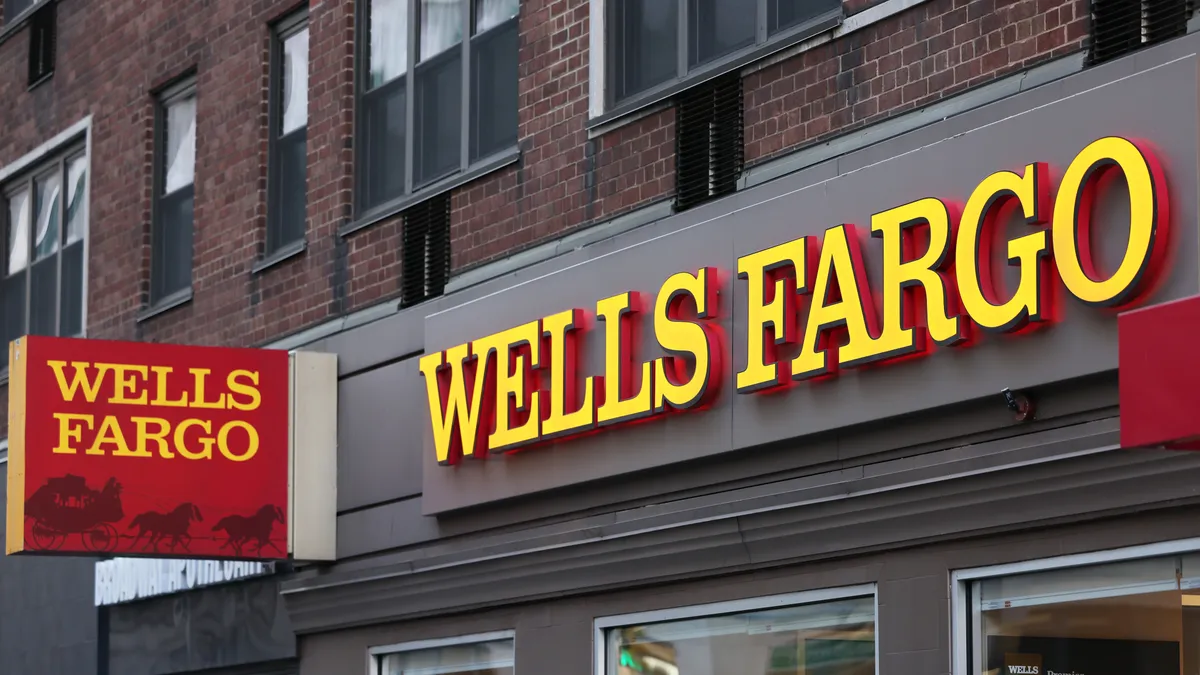Wells Fargo will pay $1 billion to settle a class-action lawsuit alleging it misled shareholders about its recovery from the 2016 fake-accounts scandal.
A preliminary settlement was filed Monday night in the U.S. District Court for the Southern District of New York, and it requires court approval. The settlement amount was recommended by a mediator, Reuters reported.
Prior leadership at the bank distorted the speed at which it was addressing and fixing faulty risk management systems that allowed sales staff to open 3.5 million fake customer accounts, plaintiffs alleged.
Further, when the bank’s slow pace became obvious in 2020, stock prices took a hit, plaintiffs said.
A Wells Fargo spokesperson told Banking Dive the agreement “resolves a consolidated securities class action lawsuit involving the company and several former executives and a director, who have not been with the company for several years.”
“While we disagree with the allegations in this case, we are pleased to have resolved this matter,” the spokesperson said.
James Diossa, general treasurer of Rhode Island, told The Wall Street Journal, “Wells Fargo betrayed the trust of Rhode Island pensioners and now is rightly facing consequences because of that.”
Rhode Island’s pension fund is one of the plaintiffs in the case.
The scandal put Wells Fargo on the receiving end of a number of financial penalties over the years, beginning with a $100 million Consumer Financial Protection Bureau fine in 2016. The scandal also prompted the Federal Reserve to place a $1.95 trillion asset cap on the bank in 2018. That limit remains active.
Several former executives have found themselves paying up for their roles in the fak- accounts scandal. In March, a judge for the Office of the Comptroller of the Currency recommended fines of $10 million for Claudia Russ Anderson, the bank’s former community bank group risk officer; $7 million for David Julian, Wells’ former chief auditor; and $1.5 million for Paul McLinko, the bank’s former executive audit director.
Carrie Tolstedt, who served as Wells’ retail-banking chief at the time of the scandal, pleaded guilty to one count of obstructing a bank examination in March. Tolstedt was aware of sales practices misconduct within Wells’ community-bank unit, and had been aware of so-called “gaming” by sales staff from corporate investigations by at least 2006, the Justice Department alleged.
Tolstedt agreed to pay a $17 million fine for her role in the scandal and faces up to 16 months of prison time.













